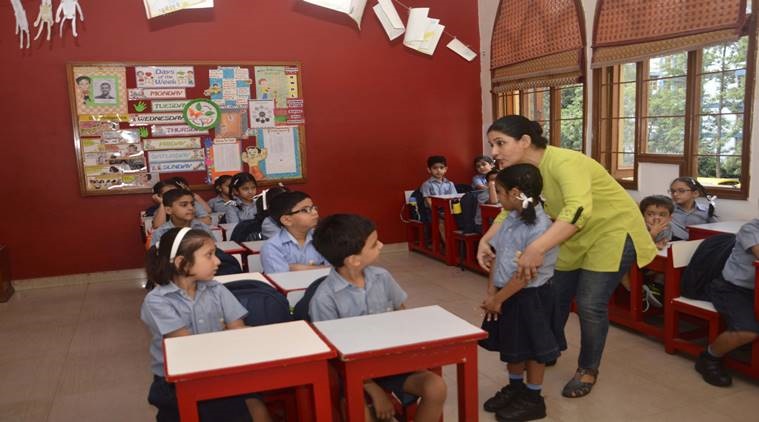 (Express photo/Representational)
(Express photo/Representational)
The new National Education Policy (NEP) 2020 released by the Centre on Wednesday has recommend a slew changes to the country’s education system. As per the new policy, by 2030, the minimum degree required for teaching will be a four-year integrated BEd. Apart from this, the Teacher Eligibility Test (TET) will also be changed as per the new school system.
Earlier, the TET was divided into two components — part 1 and part 2. Now that the school structure has been divided into four parts — foundational, preparatory, middle, and secondary — TET will also be developed accordingly. For subject teachers, suitable TET or the National Testing Agency (NTA) test scores in the corresponding subjects will also be taken into account for recruitment. The NTA will hold exams for all subjects and a common aptitude test.
Those who qualify TET will have to give a demonstration or appear in an interview, and show their knowledge of the local language, as per the new policy. As per the NEP, “Interview will become an integral part of teacher hiring”. These interviews would also assess comfort and proficiency in teaching in the local language. It would be a must for teachers in private schools as well to qualify TET.
In video | New National Education Policy
The hiring and vacancies in schools will be managed digitally. A technology-based comprehensive teacher-requirement planning forecasting exercise will be conducted by each state to assess expected subject-wise teacher vacancies over the next two decades.
Changes in BEd
Since schools will need teachers who can teach in multiple languages and have knowledge of new-age courses like computational thinking, coding etc., introduced at the school level under the NEP, BEd course will also be changed accordingly. The BEd courses will be of four-year duration. Dual BEd degrees with a focus on one language and having bilingual lectures will be offered too. BEd programmes will allow specialisation in the education of ‘gifted children’.
One and two-year BEd options will also be available. Two-year-BEd will be for candidates having a Bachelor’s degree, and one-year BEd programmes will be offered only to those who have completed the equivalent of four-year multidisciplinary Bachelor’s degree or who have obtained a Master’s degree. These candidates will be later hired as subject teachers in the area of speciality (or the subject pursued at UG or PG level).
Additionally, shorter post-B.Ed. certification courses will also be made widely available, at multidisciplinary colleges and universities.
Merit-based scholarships
To ensure that outstanding students enter the teaching profession – especially from rural areas – a large number of merit-based scholarships shall be instituted across the country for studying quality 4-year integrated BEd programs. In rural areas, special merit-based scholarships will be established that also include preferential employment in their local areas upon successful completion of their BEd programmes.
Such scholarships will provide local job opportunities to local students, especially female students so that these students serve as local-area role models and as highly qualified teachers who speak the local language. Incentives will be provided for teachers to take up teaching jobs in rural areas.
Mandatory training courses
Teachers who have already been hired will be expected to participate in at least 50 hours of continuous professional development (CPD) every year.
Read | National Education Policy: RSS wanted more, government walked the tightrope
The merit-based structure of tenure, promotion, and salary structure will be developed. Under this model, teachers will be incentivised. The system of assessment will consist of multiple parameters. These parameters will be developed by each state and will include peer reviews, attendance, commitment, hours of CPD, and other forms of service to the school and the community.
A common guiding set of National Professional Standards for Teachers (NPST) will be developed by 2022, by the National Council for Teacher Education. The professional standards will be reviewed every 10 years.
Teacher transfers will be halted, as per NEP 2020. Transfers will be allowed in “very special circumstances”. Furthermore, transfers will be conducted through an online computerized system that ensures transparency.
“In order to fully restore the integrity of the teacher education system, stringent action will be taken against substandard stand-alone Teacher Education Institutions (TEIs) running in the country, including shutting them down, if required,” as per NEP.